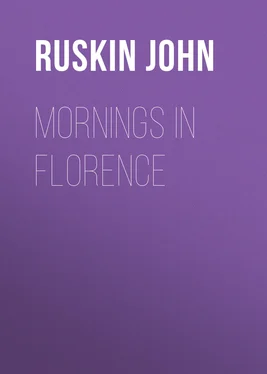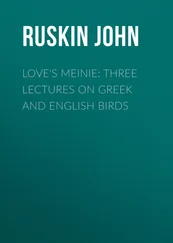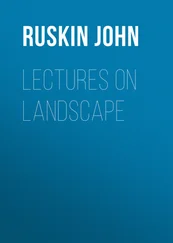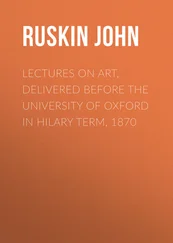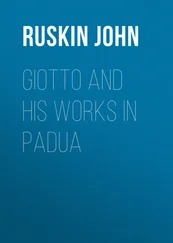John Ruskin - Mornings in Florence
Здесь есть возможность читать онлайн «John Ruskin - Mornings in Florence» — ознакомительный отрывок электронной книги совершенно бесплатно, а после прочтения отрывка купить полную версию. В некоторых случаях можно слушать аудио, скачать через торрент в формате fb2 и присутствует краткое содержание. Жанр: foreign_antique, foreign_home, literature_19, visual_arts, на английском языке. Описание произведения, (предисловие) а так же отзывы посетителей доступны на портале библиотеки ЛибКат.
- Название:Mornings in Florence
- Автор:
- Жанр:
- Год:неизвестен
- ISBN:нет данных
- Рейтинг книги:4 / 5. Голосов: 1
-
Избранное:Добавить в избранное
- Отзывы:
-
Ваша оценка:
- 80
- 1
- 2
- 3
- 4
- 5
Mornings in Florence: краткое содержание, описание и аннотация
Предлагаем к чтению аннотацию, описание, краткое содержание или предисловие (зависит от того, что написал сам автор книги «Mornings in Florence»). Если вы не нашли необходимую информацию о книге — напишите в комментариях, мы постараемся отыскать её.
Mornings in Florence — читать онлайн ознакомительный отрывок
Ниже представлен текст книги, разбитый по страницам. Система сохранения места последней прочитанной страницы, позволяет с удобством читать онлайн бесплатно книгу «Mornings in Florence», без необходимости каждый раз заново искать на чём Вы остановились. Поставьте закладку, и сможете в любой момент перейти на страницу, на которой закончили чтение.
Интервал:
Закладка:
In like manner, it is impossible to overrate the sagacity, patience, or precision, of the masters in modern mechanical and scientific discovery. But their sudden triumph, and the unbalancing of all the world by their words, may not in any wise be attributed to their own power, or even to that of the facts they have ascertained. They owe their habits and methods of industry to the paternal example, no less than the inherited energy, of men who long ago prosecuted the truths of nature, through the rage of war, and the adversity of superstition; and the universal and overwhelming consequences of the facts which their followers have now proclaimed, indicate only the crisis of a rapture produced by the offering of new objects of curiosity to nations who had nothing to look at; and of the amusement of novel motion and action to nations who had nothing to do.
Nothing to look at! That is indeed—you will find, if you consider of it—our sorrowful case. The vast extent of the advertising frescos of London, daily refreshed into brighter and larger frescos by its billstickers, cannot somehow sufficiently entertain the popular eyes. The great Mrs. Allen, with her flowing hair, and equally flowing promises, palls upon repetition, and that Madonna of the nineteenth century smiles in vain above many a borgo unrejoiced; even the excitement of the shop-window, with its unattainable splendours, or too easily attainable impostures, cannot maintain itself in the wearying mind of the populace, and I find my charitable friends inviting the children, whom the streets educate only into vicious misery, to entertainments of scientific vision, in microscope or magic lantern; thus giving them something to look at, such as it is;—fleas mostly; and the stomachs of various vermin; and people with their heads cut off and set on again;—still something , to look at.
The fame of Cimabue rests, and justly, on a similar charity. He gave the populace of his day something to look at; and satisfied their curiosity with science of something they had long desired to know. We have continually imagined in our carelessness, that his triumph consisted only in a new pictorial skill; recent critical writers, unable to comprehend how any street populace could take pleasure in painting, have ended by denying his triumph altogether, and insisted that he gave no joy to Florence; and that the "Joyful quarter" was accidentally so named—or at least from no other festivity than that of the procession attending Charles of Anjou. I proved to you, in a former lecture, that the old tradition was true, and the delight of the people unquestionable. But that delight was not merely in the revelation of an art they had not known how to practise; it was delight in the revelation of a Madonna whom they had not known how to love.
Конец ознакомительного фрагмента.
Текст предоставлен ООО «ЛитРес».
Прочитайте эту книгу целиком, купив полную легальную версию на ЛитРес.
Безопасно оплатить книгу можно банковской картой Visa, MasterCard, Maestro, со счета мобильного телефона, с платежного терминала, в салоне МТС или Связной, через PayPal, WebMoney, Яндекс.Деньги, QIWI Кошелек, бонусными картами или другим удобным Вам способом.
1
"Cum in universe orbe non reperiri dicatur quenquam qui sufficientior sit in his et aliis multis artibus magistro Giotto Bondonis de Florentia, pictore, et accipiendus sit in patriâ, velut magnus magister."—(Decree of his appointment, quoted by Lord Lindsay, vol. ii., p. 247.)
2
See, on this subject generally, Mr. R. St. J. Tyrwhitt's "Art-Teaching of the Primitive Church." S. P. B. K., 1874.
3
Footnote: I have never obtained time for any right study of early Christian church-discipline,—nor am I sure to how many other causes, the choice of the form of the basilica may be occasionally attributed, or by what other communities it may be made. Symbolism, for instance, has most power with the Franciscans, and convenience for preaching with the Dominicans; but in all cases, and in all places, the transition from the close tribune to the brightly-lighted apse, indicates the change in Christian feeling between regarding a church as a place for public judgment or teaching, or a place for private prayer and congregational praise. The following passage from the Dean of Westminster's perfect history of his Abbey ought to be read also in the Florentine church:—"The nearest approach to Westminster Abbey in this aspect is the church of Santa Croce at Florence. There, as here, the present destination of the building was no part of the original design, but was the result of various converging causes. As the church of one of the two great preaching orders, it had a nave large beyond all proportion to its choir. That order being the Franciscan, bound by vows of poverty, the simplicity of the worship preserved the whole space clear from any adventitious ornaments. The popularity of the Franciscans, especially in a convent hallowed by a visit from St. Francis himself, drew to it not only the chief civic festivals, but also the numerous families who gave alms to the friars, and whose connection with their church was, for this reason, in turn encouraged by them. In those graves, piled with standards und achievements of the noble families of Florence, were successively interred—not because of their eminence, but as members or friends of those families—some of the most illustrious personages of the fifteenth century. Thus it came to pass, as if by accident, that in the vault of the Buonarotti was laid Michael Angelo; in the vault of the Viviani the preceptor of one of their house, Galileo. From those two burials the church gradually be same the recognized shrine of Italian genius."
4
"Seven years a prisoner at the city gate,
Let in but his grave-clothes."
5
Perhaps it is only the restorer's white on the ground that stops; but I think a restorer would never have been so wise, but have gone right up to the outline, and spoiled all.
Интервал:
Закладка:
Похожие книги на «Mornings in Florence»
Представляем Вашему вниманию похожие книги на «Mornings in Florence» списком для выбора. Мы отобрали схожую по названию и смыслу литературу в надежде предоставить читателям больше вариантов отыскать новые, интересные, ещё непрочитанные произведения.
Обсуждение, отзывы о книге «Mornings in Florence» и просто собственные мнения читателей. Оставьте ваши комментарии, напишите, что Вы думаете о произведении, его смысле или главных героях. Укажите что конкретно понравилось, а что нет, и почему Вы так считаете.
